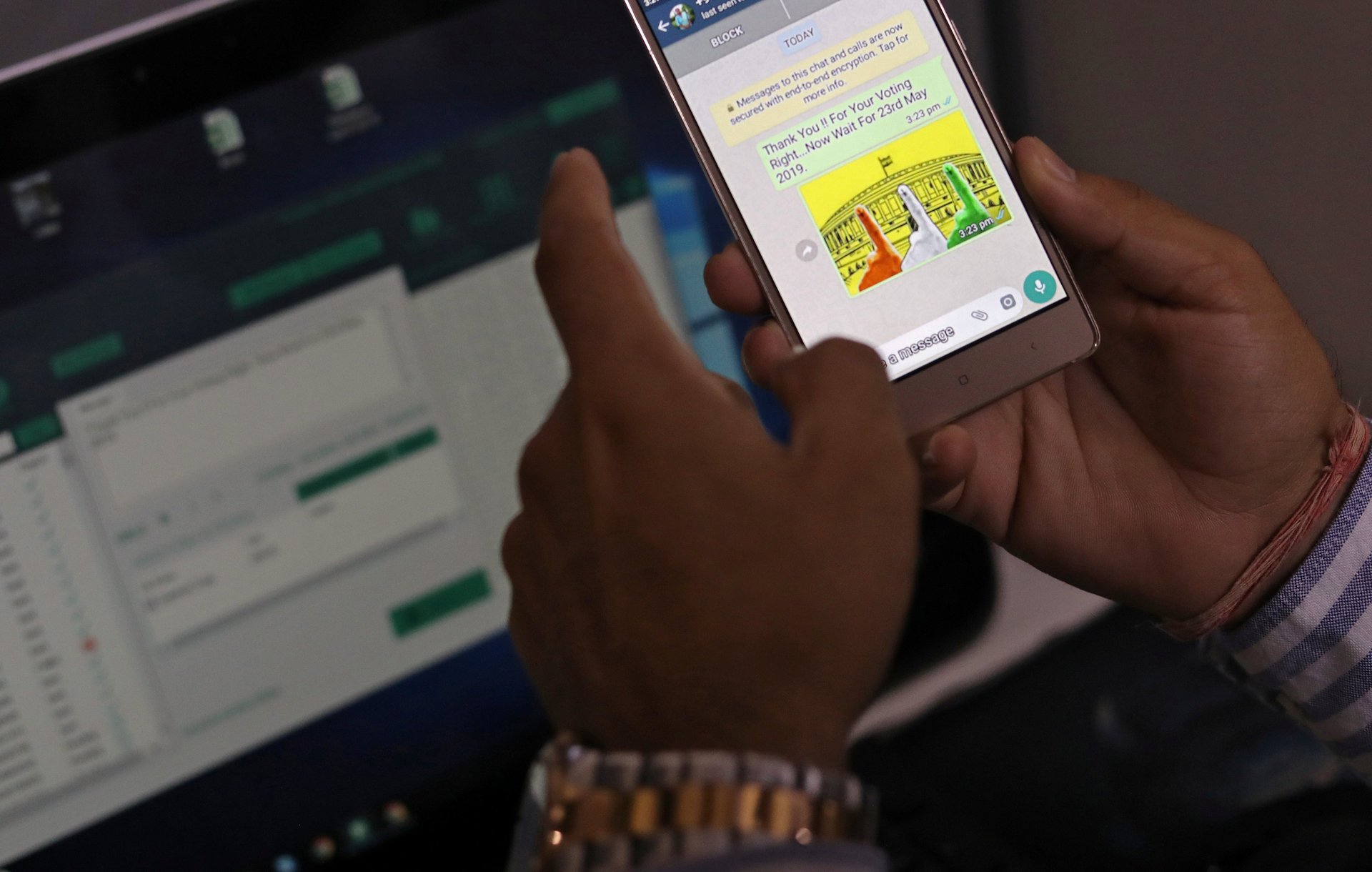WhatsApp is so popular in Africa, even knock-off versions are used more often than Facebook
WhatsApp is, by far, the top social media platform of choice across several African countries.


WhatsApp is, by far, the top social media platform of choice across several African countries.
With a platform that mirrors regular text messaging in its ease of use, WhatsApp’s appeal as a one-stop shop for personal and group chats as well as sharing media files through a lite interface has been a major hit on the continent. Take Zimbabwe, for example: WhatsApp accounted for around half of all internet data in the southern African country in 2017.
Yet, as it turns out, WhatsApp’s already massive popularity has been somewhat under-reported.
That’s because modified versions of WhatsApp which are created by third-party developers are also seeing significant usage among African mobile internet users. “WhatsApp mods”, as they’re also known, are directly shared from one device to another or downloaded from sources outside official app stores—as such, they don’t show up on download lists of the major app stores.
One reason for the high uptake of WhatsApp mods is the wider range of features on offer. “They’re obviously a big draw for a lot of people because you can do a lot of things with them that you can’t do with WhatsApp,” says Bryan Pon, co-founder of Caribou Data, an analytics and insights firm focused on emerging markets.
For instance, GB WhatsApp, the most widely used WhatsApp mod across major African markets, allows users operate multiple accounts, restore deleted messages and send and receive larger media files (up to 50 megabytes compared to 16 megabytes on WhatsApp). GB WhatsApp also offers users more control of privacy settings, including hiding features that notify others when users are online, recording a voice-note or typing a message. GB WhatsApp is used even more often than the Facebook app in Africa. Facebook is WhatsApp’s parent company.
Importantly, users of modified apps can still communicate seamlessly with contacts using official WhatsApp versions.
In all, these features have proven appealing enough to translate to a vast user-base. Caribou Data’s analysis of 230 million distinct app sessions in Nigeria, Kenya, and South Africa—three of Africa’s largest mobile internet markets—showed GB WhatsApp was the second most used social messaging app only behind WhatsApp’s official version.
The analysis was based on anonymously logged smartphone activity tracked by Caribou Data’s research app on users’ phone, with their permission. In total, social media messaging accounted for around 40% of use activity among a vast sample base of 15,000 tracked apps. And three different WhatsApp mod versions were among the ten most used messaging apps.
But while WhatsApp mods offer a wider range of extra features, the significant trade-off for users is the loss of WhatsApp’s signature end-to-end encryption on messages. That’s not the only downside either: GB WhatsApp notes the app “is not safe for fair usage” and leaves users at risk of malware infections when downloaded from other sites. Overall, WhatsApp mod developers are usually “candid about warnings” and risks that come with their versions of WhatsApp, Pon says.
For its part, WhatsApp says “unofficial” versions of the app violate its terms of service and are “unsupported” because their security practices cannot be validated. WhatsApp mod users, it also warns, can be banned from using the official app. Yet WhatsApp mod developers advise users not to register with their primary phone numbers in other to circumvent the risk of a ban.
Despite the popularity of WhatsApp mods and their features among mobile internet users in emerging markets, it’s unlikely WhatsApp will tweak its current features to mirror modified versions especially given its history of slow-paced innovation. As Pon says: “WhatsApp has always been about trying to be a streamlined app—just trying to be as simple and as secure as possible.”
Sign up to the Quartz Africa Weekly Brief here for news and analysis on African business, tech and innovation in your inbox